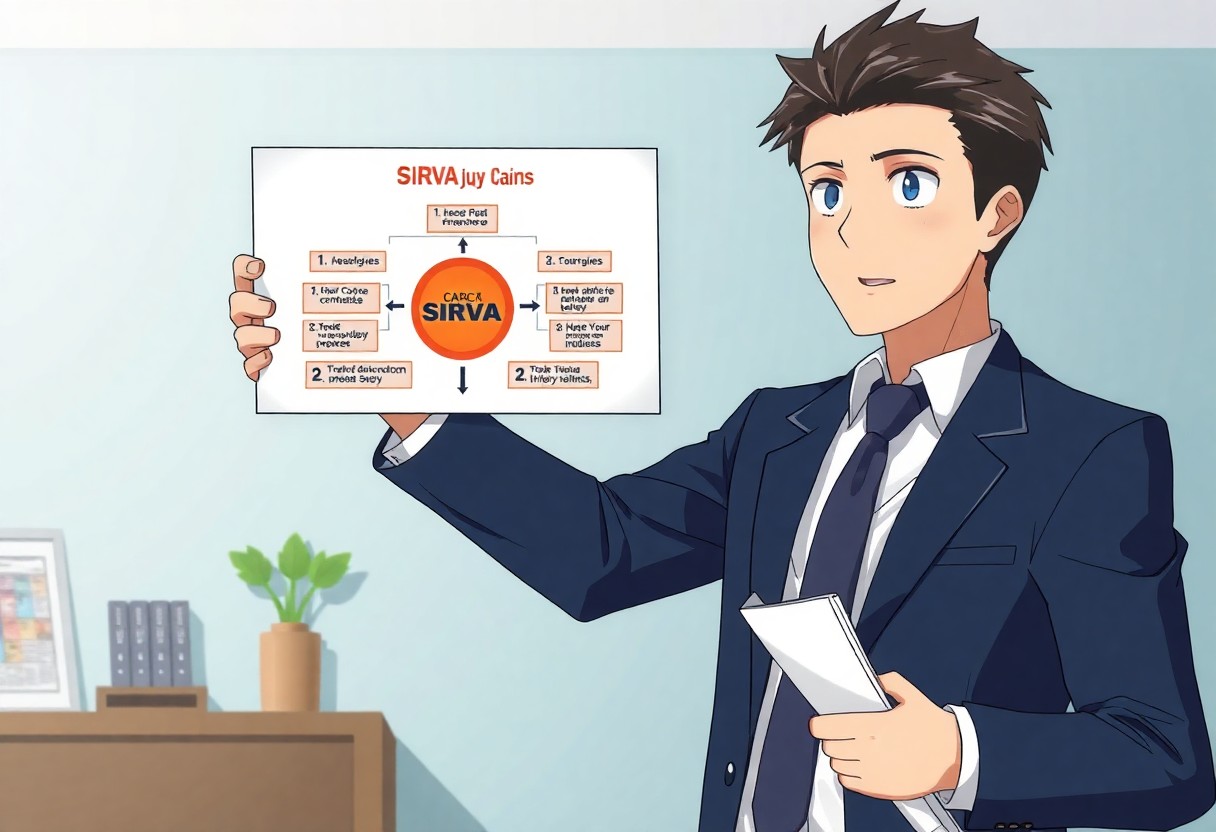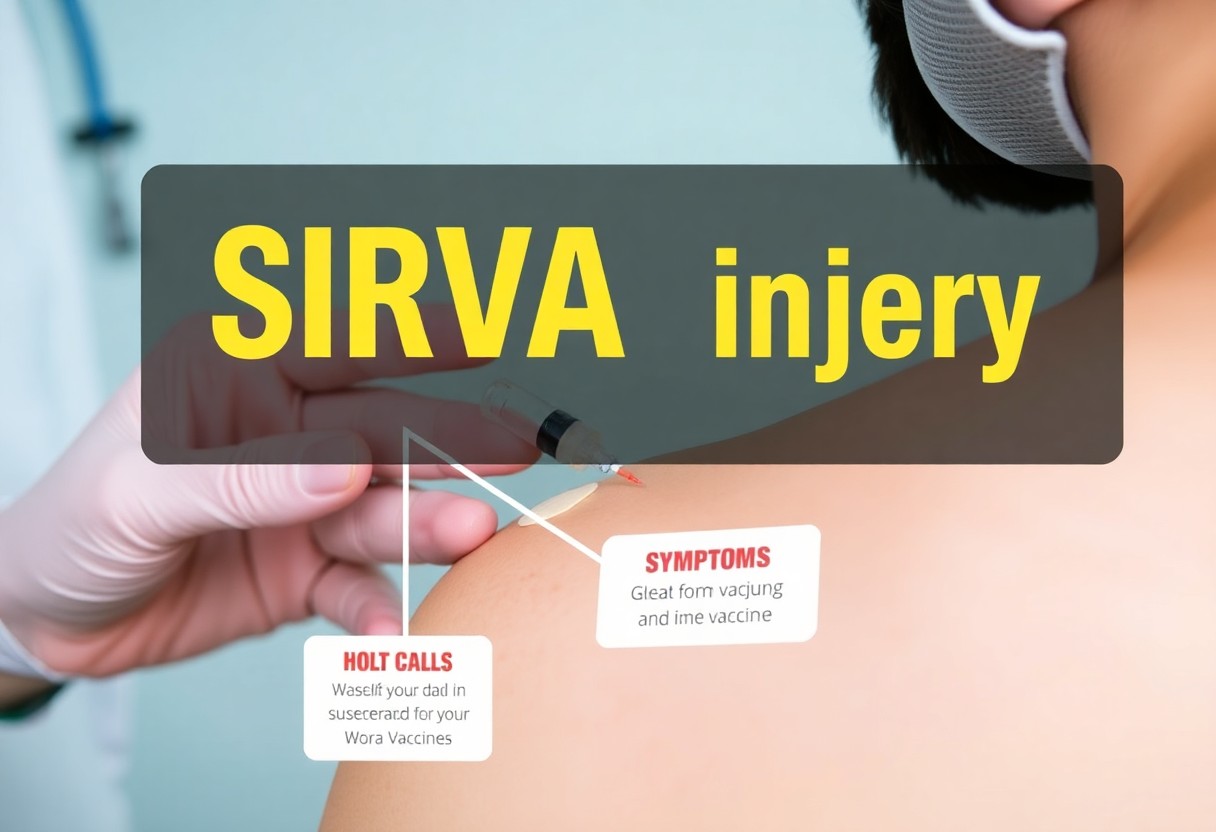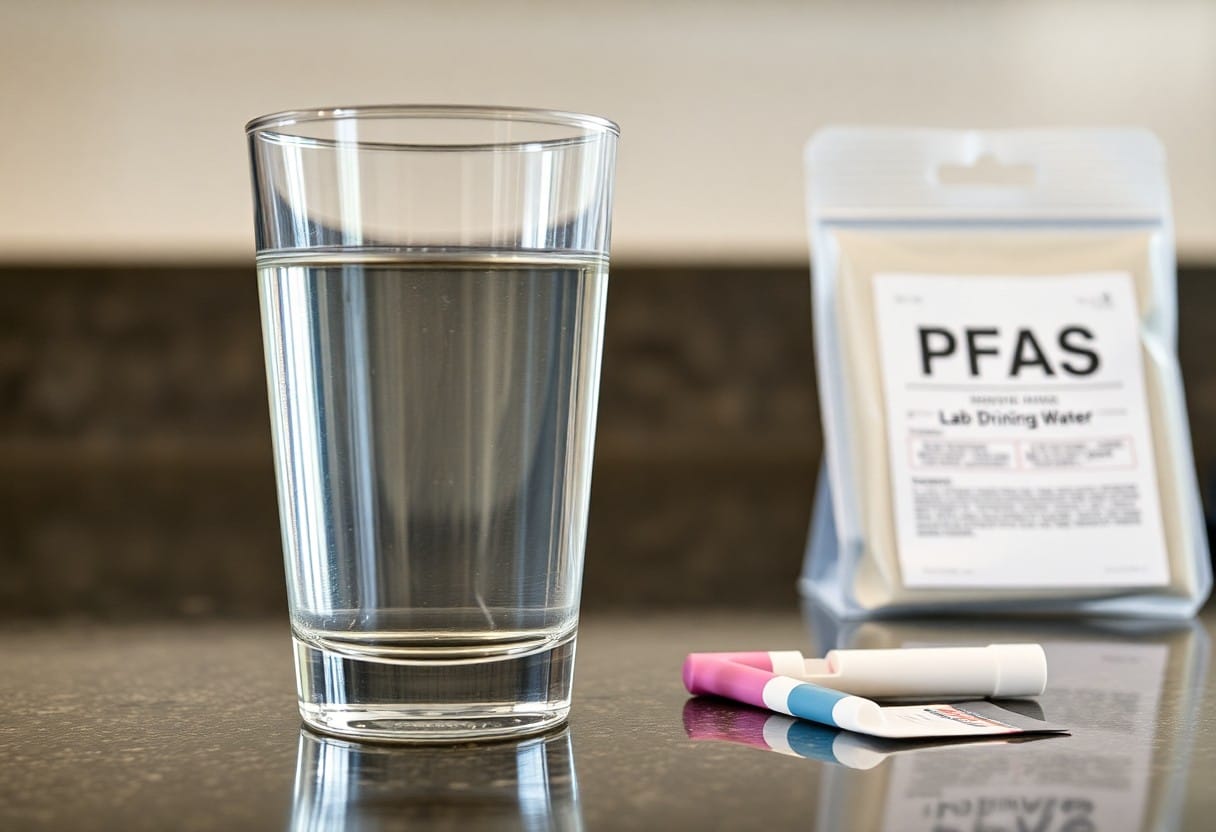You may find yourself navigating complex emotional and physical hurdles after a SIRVA injury related to a vaccination. Understanding what steps to take next is important for protecting your rights and ensuring you receive appropriate care and compensation. In this post, you’ll discover the five critical actions you should take immediately following a SIRVA injury, including your legal options so you can make informed decisions to safeguard your wellbeing and future.
Understanding SIRVA Injuries
Before entering into your legal options, it’s important to understand SIRVA injuries, which occur when you experience pain or injury in your shoulder following a vaccination or injection. This condition can significantly impact your daily life and may require medical attention. Knowing the signs and symptoms, as well as the causes and risk factors, is a vital first step in addressing your injury effectively.
Definition and Symptoms
Above all, SIRVA (Shoulder Injury Related to Vaccine Administration) is characterized by shoulder pain, limited range of motion, and in some cases, swelling or tenderness around the injection site. Common symptoms include discomfort that begins within a few days after vaccination and can last for weeks or even months.
Causes and Risk Factors
On understanding the causes and risk factors of SIRVA injuries, you can take proactive measures to prevent them. Factors that may contribute to SIRVA include improper injection technique, anatomical variations, or incorrect vaccine administration in individuals with pre-existing shoulder conditions. Being aware of these factors can help you mitigate risks in future vaccinations.
- Improper injection technique
- Anatomical variations of the shoulder
- Presence of pre-existing shoulder conditions
This awareness is crucial in minimizing your risk of sustaining a SIRVA injury.
Symptoms of SIRVA can vary based on individual circumstances; however, they typically include a combination of pain, stiffness, and swelling. Recognizing these signs in yourself can be instrumental in seeking timely medical intervention.
- Pain that worsens with movement
- Limited range of motion in the shoulder
- Swelling around the injection site
This knowledge empowers you to respond effectively to any discomfort you may experience post-vaccination.
Immediate Actions Post-Injury
The moments following a SIRVA injury are pivotal for your recovery and legal options. First and foremost, it’s necessary to act swiftly to ensure you receive the appropriate care and documentation that will support your case moving forward. Ignoring symptoms or delaying action can complicate your recovery and weaken your position should you choose to take legal action later.
Seeking Medical Attention
Attention to your health is paramount after experiencing a SIRVA injury. You should seek medical help immediately, even if the pain seems manageable. A healthcare professional will be able to assess your condition and determine the necessary treatment, as well as rule out any serious complications that may arise from the injury. Early medical intervention sets the foundation for your recovery and legal process.
Documenting Your Condition
The importance of thorough documentation cannot be overstated. You need to keep detailed records of your symptoms, treatments received, and any medical professionals you consult. This documentation serves as evidence of your injury and can be an necessary part of your case in any subsequent legal action.
Your medical documentation should also include notes from each appointment, prescriptions, and any imaging or testing results. Taking the time to maintain this documentation will help establish a clear link between the injury and any ongoing pain or disability. This record will be invaluable if you pursue compensation, as it demonstrates the seriousness of your condition and the impact it has on your daily life.
Legal Options for SIRVA Victims
Some victims of SIRVA may feel overwhelmed by the injuries they have sustained and the legal landscape surrounding them. Understanding your rights and the options available to you is necessary for navigating this complex situation. You could seek financial compensation for medical expenses, lost wages, and pain and suffering, allowing you to focus on recovery while holding responsible parties accountable.
Understanding Your Rights
About SIRVA victims, it’s vital to recognize that you possess rights under the law. You have the right to seek compensation for your injuries, and there may be specific medical and workplace regulations that apply to your situation. Familiarizing yourself with these rights can empower you to make informed decisions as you pursue legal action.
Types of Legal Claims
Your options for legal claims can include a variety of approaches based on the specifics of your case. Depending on your situation, you may consider the following types of legal claims:
| Legal Claim Type | Description |
| Workers’ Compensation | Compensation for work-related injuries. |
| Personal Injury | Claims against a negligent third party. |
| Medical Malpractice | Claims against healthcare providers for negligence. |
| Product Liability | Claims against manufacturers of faulty medical devices. |
| Disability Claims | Claims for disability benefits due to injury. |
In addition to ensuring you understand your rights, you should become familiar with the different types of legal claims you can pursue as a SIRVA victim. The right claim depends on the circumstances of your injury. Possible claims include:
- Workers’ Compensation
- Personal Injury
- Medical Malpractice
- Product Liability
- Disability Claims
Thou should carefully assess each option with the guidance of a legal professional to determine the best course of action based on your injury specifics.
The Importance of Legal Representation
After experiencing a SIRVA injury, having legal representation is vital to ensure that your rights are protected and that you receive the compensation you deserve. Navigating the complexities of personal injury claims can be overwhelming, especially when dealing with insurance companies and medical providers. An experienced attorney can provide guidance and support throughout the process, empowering you to make informed decisions about your case.
Hiring an Experienced Attorney
About your situation, having an experienced attorney by your side can significantly impact the outcome of your claim. An attorney who specializes in SIRVA injuries will know the intricacies of your case, understand relevant laws, and have a track record of successfully negotiating settlements or litigating on behalf of clients. This expertise can lead to a higher likelihood of achieving a favorable resolution for your injury claim.
Questions to Ask Potential Lawyers
Behind every successful legal representation is thorough preparation and understanding. When choosing an attorney, it’s vital to ask the right questions to gauge their experience and approach. Inquire about their familiarity with SIRVA cases, their track record of results, and how they plan to handle your specific situation. Additionally, discuss their communication style and availability to ensure a strong working relationship.
Importance of asking the right questions cannot be understated. Your attorney will be your advocate during a challenging time, and understanding their background and approach is key to ensuring they align with your needs. Key topics to address include their experience with similar cases, their success rate, and whether they will be handling your case personally or passing it to a junior attorney. Establishing a strong rapport and transparent communication with your lawyer will greatly enhance your confidence in pursuing your claim.
Building Your Case
Your success in pursuing a claim after a SIRVA injury hinges on how effectively you build your case. This involves gathering all relevant information and presenting it in a structured manner. By meticulously collecting evidence, obtaining witness statements, and seeking support, you can establish a compelling narrative that strengthens your position. This foundational step can significantly influence the outcome of your legal options.
Collecting Evidence
Against this backdrop, you should prioritize gathering all pertinent medical records, treatment notes, and any documentation related to your injury. This evidence should include photographs of the injection site, symptom diaries, and correspondence with healthcare providers. Comprehensive evidence is critical for substantiating your claims and demonstrating the impact of the injury on your life.
Witness Statements and Support
Above all, witness statements can serve as powerful testimonials that bolster your case. Reach out to individuals who can verify details of the incident, such as family members, friends, or coworkers who witnessed the SIRVA injury or were present during related medical procedures. Their accounts can offer additional credibility to your claim, illustrating the effects of your injury on your daily life and activities.
Witness statements provide invaluable support, adding authenticity to your case. When gathering these statements, ensure that the witnesses detail their observations clearly, including the date, time, and nature of what they witnessed. Encourage them to explain how your injury has affected not just your physical condition but also your day-to-day responsibilities and emotional well-being. Comprehensive witness support can significantly enhance the strength of your claim, leading to better outcomes in your legal journey.
Navigating the Claims Process
For anyone facing a SIRVA injury, understanding the claims process is vital to your recovery. Knowing the steps involved can help you feel more empowered and prepared as you seek compensation for your injuries, medical treatments, and any associated losses. Your approach can significantly impact the outcome of your claim, making it important to stay informed and proactive throughout the entire process.
Filing a Claim
Behind every successful claim is a well-documented file. You need to gather all necessary medical records, evidence of your injury, and any correspondence related to your treatment or your employer’s policies. A thorough presentation of your case adds credibility and strengthens your argument, providing you with the best chance for a favorable outcome.
Timeline and Expectations
Against a backdrop of varying state and federal regulations, the timeline for resolving your claim can fluctuate significantly. From the moment you file until a settlement is reached, multiple steps are involved, including the initial claim review, potential investigations, negotiations, and possibly court proceedings. Each of these phases can take days to months, depending on the complexity of your case.
Expectations surrounding the timeline can help alleviate some anxiety during the claims process. Typically, after filing, you may receive an initial response within a few weeks, while more comprehensive investigations can take several months. It’s also important to maintain open communication with your legal counsel to receive updates on progress and any potential hurdles that may arise. Being patient and proactive will ultimately give you more control over the situation.
Conclusion
Ultimately, understanding the five critical steps to take after a SIRVA injury empowers you to protect your rights and navigate the legal landscape effectively. By documenting your injury, seeking medical attention, and consulting with a competent attorney, you can build a strong case to support your claims. Evaluating your legal options allows you to make informed decisions, ensuring you receive the compensation you deserve for your suffering. Staying proactive in this process is imperative to achieving a favorable outcome for your situation.


















